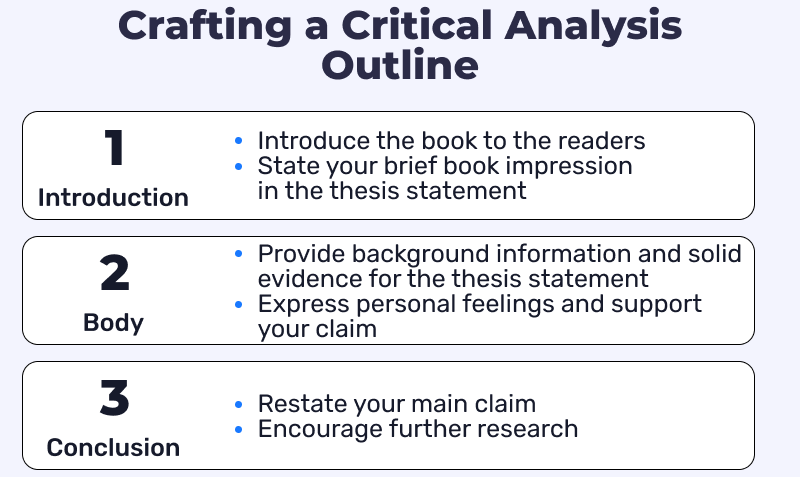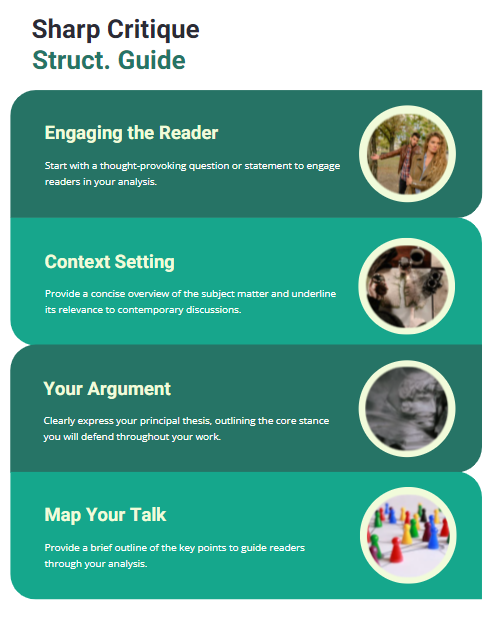
Table of Contents
In the dynamic and demanding field of nursing, critical thinking is paramount. It’s the bedrock of informed decision-making, efficient patient care, and continuous professional development. A critical analysis nursing paper provides a platform for nurses to showcase their analytical prowess, delve into complex nursing issues, and contribute to the body of knowledge within the profession. But crafting a truly compelling critical analysis nursing paper requires more than simply summarizing information. It demands a deep understanding of the chosen topic, skillful analysis, and effective communication of your insights.
This guide aims to equip you with the tools and strategies necessary to write a critical analysis nursing paper that not only meets the academic requirements but also shines with intellectual depth and persuasive clarity.
Steps to Crafting a Compelling Critical Analysis Nursing Paper
1. The Foundation: Choosing Your Topic and Research Question
The first step in writing a compelling critical analysis nursing paper is choosing a relevant and engaging topic. Consider your areas of interest, current nursing trends, and gaps in existing knowledge. A well-chosen topic will not only motivate you throughout the writing process but also offer a fertile ground for insightful analysis.
Once you have a topic, formulate a clear and focused research question. This question will act as a guiding star, directing your research and shaping your argument. For instance, instead of broadly analyzing “patient satisfaction in hospital settings,” a more focused question might be: “What factors contribute to patient dissatisfaction with post-operative pain management, and how can these factors be addressed in a hospital setting?”
2. The Building Blocks: Gathering and Evaluating Evidence
A strong critical analysis nursing paper is built on a solid foundation of evidence. Your research should encompass a diverse range of sources, including:
- Peer-reviewed articles: These are the gold standard for credible information in nursing. Look for articles published in reputable nursing journals.
- Books: Textbook chapters or dedicated books on your chosen topic can provide a broader theoretical context.
- Reports and guidelines: Government agencies, professional organizations, and healthcare institutions publish reports and guidelines that are relevant to specific nursing practices.
- Case studies: Real-life case studies can offer valuable insights and illustrate the practical implications of your analysis.
- Primary sources: Interviews with patients, nurses, or healthcare professionals can provide first-hand perspectives on your chosen topic.
As you gather evidence, critically evaluate each source. Consider its credibility, relevance, bias, and the quality of the research methods employed. This critical evaluation process is crucial for constructing a robust argument and avoiding misleading information.
3. The Framework: Structuring Your Analysis
A well-structured critical analysis nursing paper ensures clarity and coherence in your argument. Here’s a common structure:
Introduction:
- Hook: Begin with a compelling statement or question that captures the reader’s attention.
- Background: Briefly introduce the topic and its significance in nursing practice.
- Thesis statement: Clearly articulate your main argument or point of view on the chosen topic.
- Roadmap: Briefly outline the structure of your paper, indicating the key points you will discuss.
Body Paragraphs:
- Topic Sentence: Each paragraph should start with a topic sentence that clearly states the main idea of the paragraph.
- Evidence and Analysis: Support your arguments with evidence from your research. Analyze the evidence, explaining its relevance to your thesis and drawing connections between different sources.
- Critical Evaluation: Go beyond simply summarizing the evidence. Analyze its strengths and weaknesses, identify potential biases, and highlight its implications for nursing practice.
Discussion:
- Synthesize your Findings: Revisit your thesis statement in light of the evidence presented in the body paragraphs.
- Implications: Discuss the practical implications of your findings for nursing practice, education, and research.
- Limitations: Acknowledge any limitations in your research or analysis, being transparent about potential biases or gaps in your knowledge.
- Recommendations: Based on your analysis, offer potential solutions or recommendations for future research or practice.
Conclusion:
- Restate your Thesis: Briefly reiterate your main argument in a fresh and concise way.
- Summary of Key Points: Summarize the most important findings and insights from your analysis.
- Call to Action: End with a powerful statement or question that encourages further thought or action related to the topic.

4. The Craft: Writing with Clarity and Persuasion
Once you have a solid structure, the next step is to write your critical analysis nursing paper with clarity and persuasiveness. Here are some key tips:
- Use a clear and concise writing style: Avoid jargon, overly complex sentence structures, and ambiguous language. Strive for clear and direct communication.
- Use evidence effectively: Integrate evidence seamlessly into your analysis, using quotes, paraphrasing, and citations to support your claims.
- Engage in critical thinking: Don’t simply report facts. Analyze the evidence, draw connections, and offer your own interpretations and insights.
- Maintain a professional tone: While expressing your own opinions, maintain a respectful and objective approach.
- Proofread and edit carefully: Before submitting your paper, carefully proofread and edit for any grammatical errors, spelling mistakes, or inconsistencies.
5. The Key Ingredients: Crafting a Compelling Critical Analysis Nursing Paper
To elevate your critical analysis nursing paper from good to exceptional, consider these elements:
- Relevance: Connect your analysis to real-world nursing challenges and the needs of your patients.
- Originality: Offer fresh insights and perspectives that go beyond the obvious.
- Impact: Discuss the practical implications of your findings and their potential to improve nursing practice.
- Engagement: Write in a way that captures the reader’s attention and stimulates their thinking.
- Depth: Explore your topic in depth, demonstrating your understanding of complex nursing issues.
Examples of Compelling Critical Analysis Nursing Papers
Here are some examples of compelling critical analysis nursing papers that you can use as inspiration:
- Analyzing the ethical implications of assisted suicide in end-of-life care: This paper explores the ethical dilemmas surrounding assisted suicide and its impact on nursing practice. It could analyze different perspectives on the issue, discuss relevant ethical frameworks, and offer recommendations for nurses working with terminally ill patients.
- Exploring the effectiveness of different pain management strategies for patients with chronic pain: This paper could compare and contrast different pain management approaches, examine the evidence for their effectiveness, and identify potential barriers to successful pain management.
- Evaluating the role of technology in enhancing patient safety and improving communication between healthcare professionals: This paper could analyze the impact of electronic health records, telemedicine, and other technologies on nursing practice, explore potential benefits and risks, and discuss future directions for technology in healthcare.
The Power of a Compelling Critical Analysis Nursing Paper
Writing a compelling critical analysis nursing paper is not just about fulfilling academic requirements. It is a vital skill for nurses to develop, enabling them to:
- Deepen their understanding of nursing theory and practice: By analyzing complex nursing issues, you gain a more nuanced understanding of the profession and its underlying principles.
- Contribute to the advancement of nursing knowledge: Your critical analysis can contribute to the body of knowledge in nursing, shedding light on important issues and suggesting new directions for research and practice.
- Become more effective and ethical practitioners: By developing your analytical skills, you become better equipped to make informed decisions, advocate for your patients, and deliver high-quality care.
- Advance your career: A strong portfolio of critical analysis nursing papers demonstrates your analytical abilities, critical thinking skills, and commitment to professional development, which can enhance your career prospects.
Avoiding Common Pitfalls in Critical Analysis Nursing Papers
The critical analysis nursing paper is a staple in nursing education, designed to hone students’ critical thinking skills and apply them to real-world scenarios. However, this seemingly straightforward assignment can be fraught with pitfalls that can derail even the most diligent student. Recognizing and avoiding these common errors is crucial to producing a strong and insightful critical analysis nursing paper.
Pitfall 1: Lack of Clarity and Focus: One of the most frequent pitfalls is a lack of clear focus. Students often struggle to define the central theme or argument they aim to analyze, leading to a meandering and unfocused paper.
Solution: Begin by carefully selecting a relevant and specific topic for your critical analysis nursing paper. Ensure you have a clear thesis statement that concisely summarizes your argument. This will guide your analysis and keep you on track throughout the writing process.
Pitfall 2: Inadequate Research: A strong critical analysis nursing paper requires a solid foundation of research. Without sufficient and reliable sources, your analysis will lack depth and credibility.
Solution: Consult credible academic journals, books, and professional organizations for relevant information. Critically evaluate the sources you choose, ensuring they are relevant, up-to-date, and support your arguments.
Pitfall 3: Descriptive vs. Analytical: A common mistake is simply summarizing the information without engaging in a critical analysis of the topic. This results in a descriptive paper that lacks insight.
Solution: Move beyond simply describing the chosen topic. Instead, delve into the “why” and “how” of the issue. Analyze the strengths and weaknesses, identify biases, and critically evaluate the implications of the information.

Pitfall 4: Lack of Evidence and Support: Every claim you make in your critical analysis nursing paper must be supported with evidence. Failing to do so weakens your arguments and leaves your analysis open to criticism.
Solution: Use a combination of research findings, theoretical frameworks, and personal experience to support your claims. Ensure you cite your sources accurately and consistently using a recognized citation style.
Pitfall 5: Ignoring Counterarguments: A thorough critical analysis nursing paper examines both sides of the issue. Neglecting to address potential counterarguments leaves your analysis incomplete and weakens your credibility.
Solution: Acknowledge and critically evaluate opposing perspectives. This demonstrates a nuanced understanding of the topic and strengthens your overall argument.
Pitfall 6: Insufficient Conclusion: The conclusion of your critical analysis nursing paper should not merely rehash your findings. It should be a powerful synthesis of your arguments and a clear statement of your conclusions.
Solution: Summarize your key arguments and address the implications of your analysis. Offer recommendations or call for further research where appropriate.
Pitfall 7: Poor Writing and Organization: A poorly written critical analysis nursing paper, regardless of its content, will fail to impress. Clarity, conciseness, and proper grammar are essential for effective communication.
Solution: Spend time editing and proofreading your paper carefully. Use clear language and a logical organizational structure to enhance the readability and impact of your work.
By avoiding these common pitfalls, you can craft a powerful and insightful critical analysis nursing paper. Remember, the goal is to demonstrate your critical thinking skills and apply your knowledge to a relevant nursing topic. With careful planning, thorough research, and a strong writing style, you can elevate your critical analysis nursing paper to new heights.
Frequently Asked Questions about Critical Analysis Nursing Papers
The critical analysis nursing paper, a staple in many nursing programs, can be a daunting task for students. It demands not just a deep understanding of the subject matter but also the ability to critically evaluate and synthesize information from multiple sources. To help navigate this process, here are some answers to frequently asked questions:
1. What is a critical analysis nursing paper, exactly?
A critical analysis nursing paper goes beyond simple summarization of information. It involves a deep dive into a chosen topic, meticulously examining existing research, identifying strengths and weaknesses, and ultimately formulating your own informed conclusions. This can be done through a variety of approaches, such as comparing and contrasting different studies, evaluating the effectiveness of an intervention, or analyzing the ethical implications of a particular practice.
2. What are the key elements of a good critical analysis nursing paper?
A strong critical analysis nursing paper should possess the following qualities:
- Clear focus: The paper should have a specific, well-defined topic and a clear argument or thesis statement that guides your analysis.
- Rigorous research: Your paper should be based on a thorough and systematic review of relevant literature, including peer-reviewed articles, books, and other credible sources.
- Critical thinking: Don’t simply summarize the findings of others. Analyze the information critically, identifying potential biases, limitations, and gaps in the literature.
- Logical structure: Organize your paper in a clear and logical way, using headings and subheadings to guide the reader through your analysis.
- Sound evidence: Support your arguments with specific examples, data, and citations from reputable sources.
- Objectivity: While you will be expressing your own opinions and interpretations, maintain a balanced and objective tone throughout the paper.
3. What are some common mistakes to avoid when writing a critical analysis nursing paper?
- Lack of clear thesis statement: A strong thesis statement provides the backbone for your entire analysis. Without one, your paper may lack focus and direction.
- Insufficient research: Relying on limited sources or inadequate research will weaken your analysis.
- Descriptive writing: Avoid simply summarizing the literature without offering your own critical insights and interpretations.
- Ignoring opposing viewpoints: Acknowledge and address counterarguments to strengthen your analysis and demonstrate a nuanced understanding of the topic.
- Poorly formatted citations: Always adhere to the specific citation style required by your institution to avoid plagiarism.
4. How do I choose a topic for my critical analysis nursing paper?
Selecting a topic for your critical analysis nursing paper is an important first step. Consider the following:
- Relevance: Choose a topic that is relevant to your current nursing studies or to your future career goals.
- Interest: Select a topic that genuinely interests you, as this will make the research process more enjoyable and engaging.
- Feasibility: Ensure that enough credible research exists on your chosen topic to support your analysis.
5. How can I improve my critical thinking skills for my critical analysis nursing paper?
Developing strong critical thinking skills is essential for any nursing student. Here are a few tips:
- Question everything: Don’t accept information at face value. Always question the assumptions, evidence, and conclusions presented in your sources.
- Identify biases: Be aware of potential biases in the research you are reviewing, such as author affiliations, funding sources, or research methodologies.
- Consider alternative perspectives: Look for different interpretations of the same research findings and explore opposing viewpoints.
- Practice your skills: Regularly engage in activities that challenge your critical thinking skills, such as reading opinion pieces, analyzing current events, or participating in debates.
6. How can I effectively structure my critical analysis nursing paper?
A logical structure helps ensure that your critical analysis nursing paper is clear, coherent, and easy to follow. Here’s a possible framework:
- Introduction: Introduce the topic, state your thesis statement, and outline the main points you will address in your paper.
- Literature review: Present a thorough and systematic review of relevant literature, synthesizing key findings and highlighting significant gaps or inconsistencies.
- Critical analysis: Offer your own critical interpretation of the literature, examining strengths, weaknesses, and potential biases.
- Discussion: Discuss the implications of your findings, including potential areas for future research or clinical practice changes.
- Conclusion: Summarize your main findings, reiterate your thesis statement, and offer your final thoughts on the topic.
7. What are some tips for writing a strong conclusion for my critical analysis nursing paper?
Your conclusion should provide a satisfying end to your analysis and leave a lasting impression on the reader. Here are some key elements:
- Summarize main points: Briefly restate the main arguments and findings presented in your paper.
- Reiterate thesis statement: Restate your thesis statement in a new and compelling way.
- Offer concluding thoughts: Share your own final thoughts on the topic, highlighting the significance of your findings and their potential implications for future research or practice.
Remember, the critical analysis nursing paper is a powerful tool for learning and developing your skills as a future healthcare professional. By approaching this assignment with thoroughness, critical thinking, and effective communication, you will not only meet the requirements of your course but also contribute to the advancement of nursing knowledge.
The Bottom Line: Embrace the Power of Critical Analysis
Writing a compelling critical analysis nursing paper is a challenging but rewarding endeavor. By following these steps, you can craft a paper that showcases your intellectual depth, critical thinking skills, and passion for the nursing profession. Embrace the power of critical analysis and use it to elevate your understanding of nursing, contribute to the field, and become a more effective and ethical practitioner.

Remember, your critical analysis nursing paper is an opportunity to make a meaningful contribution to nursing practice. By carefully selecting your topic, gathering and evaluating evidence, structuring your analysis, and writing with clarity and persuasiveness, you can create a paper that not only meets the academic requirements but also leaves a lasting impact on the nursing profession.
Get Customized Nursing Paper Writing Help
At Nursing Papers, we offer professional paper writing services for all types of nursing papers and assignments. Our service covers topic suggestion, nursing paper writing, proofreading, editing, formatting and plagiarism removal. Do not hesitate to engage us for authentic nursing research papers, essays, case studies and dissertations.







